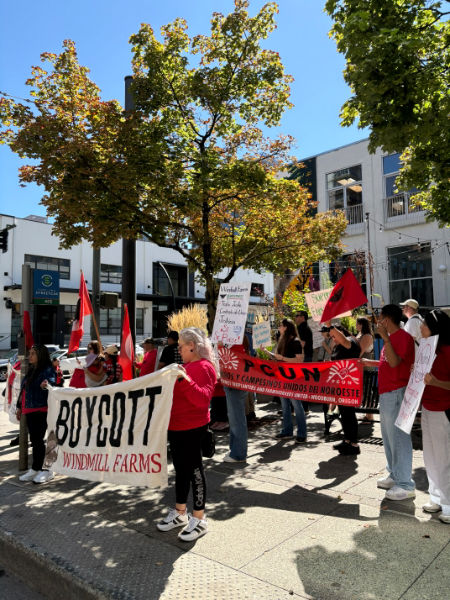Renegotiating NAFTA
- Oregon AFL-CIO
- Dec 12, 2019
- 2 min read
On Tuesday, December 10, the National AFL-CIO announced the endorsement of the United States-Mexico-Canada Agreement (USMCA) after successfully negotiating improvements for workers’ rights and labor standards in the trade deal to replace the North American Free Trade Agreement (NAFTA).
Oregon AFL-CIO President Graham Trainor responded to the news:
After decades of disastrous consequences for working families and nearly two years of renegotiation, NAFTA has finally been rewritten in a way that makes trade rules in the U.S. fairer. Thanks to the perseverance of working people across the country, the new USMCA contains the first truly enforceable labor standards, raising the bar for future trade negotiations. While it's not perfect, working people relentlessly demanded a deal that benefits workers over corporate profits and now have secured an agreement we can proudly support. Thanks to AFL-CIO President Richard Trumka, and Oregon's own Senator Ron Wyden, Congresswoman Suzanne Bonamici, and Congressman Earl Blumenauer for their leadership.
National AFL-CIO President Richard Trumka issued a statement on December 10 explaining why the Federation supports the deal:
Make no mistake, we demanded a trade deal that benefits workers and fought every single day to negotiate that deal; and now we have secured an agreement that working people can proudly support. I am grateful to House Speaker Nancy Pelosi and her allies on the USMCA working group, along with Senate champions like Sherrod Brown and Ron Wyden, for standing strong with us throughout this process as we demanded a truly enforceable agreement. I also commend Ambassador Robert Lighthizer for being a straight shooter and an honest broker as we worked toward a resolution. Working people are responsible for a deal that is a vast improvement over both the original NAFTA and the flawed proposal brought forward in 2017. For the first time, there truly will be enforceable labor standards—including a process that allows for the inspections of factories and facilities that are not living up to their obligations. The USMCA also eliminates special carve outs for corporations like the giveaway to Big Pharma in the administration’s initial proposal and loopholes designed to make it harder to prosecute labor violations. The USMCA is far from perfect. It alone is not a solution for outsourcing, inequality or climate change. Successfully tackling these issues requires a full-court press of economic policies that empower workers, including the repeal of tax cuts which reward companies for shipping our jobs overseas. But there is no denying that the trade rules in America will now be fairer because of our hard work and perseverance. Working people have created a new standard for future trade negotiations. President Trump may have opened this deal. But working people closed it. And for that, we should be very proud.
To learn more about America’s Unions’ positions on trade and enforcing labor standards for all workers, please click here.




Comments